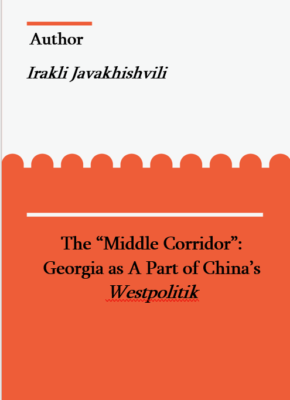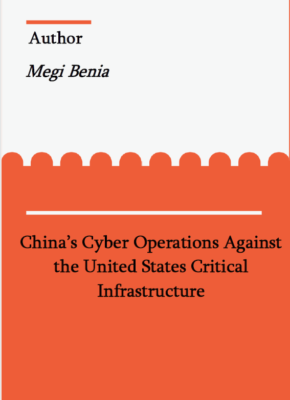
 The “Middle Corridor”: Georgia as A Part of ...
The “Middle Corridor”: Georgia as A Part of ...
Author: Irakli Javakhishvili
The project of the “Middle Corridor” which is a component of China’s “grand strategy”, is an important instrument of Beijing’s Westpolitik. Georgia, in turn, has a significant place in this project, due to its favorable geopolitical location.Through the regions of Central Asia and the South Caucasus, China will create various land connections with the European Union, which will also serve as an alternative to the Russian route. This will be the shortest way from China to Romania – the “Middle Corridor”, which will pass through Central Asia, the Caspian Sea, the South Caucasus, and the Black Sea. In the same sense, the Anaklia deep-water port can become an essential node in the functioning of the Corridor, especially if its construction is carried out by a Chinese company (it will have not only an economic, but also a significant political weight). However, regardless of the possible economic benefits that Georgia may receive from the “Middle Corridor” project, including through the Anaklia port, such a shift in foreign policy priorities of Tbilisi may cause irreparable damage to the country’s aspirations to join the EU and, in general, completely alienate it from the Western democratic world. At the same time, the benefits of the Middle Corridor project will be much greater for China (in proportionality) than for Georgia, particularly in the light of the fact that Beijing often shows dishonesty in bilateral agreements and partnerships, and often applies economic and political leverage to the contracting party.
 China’s Cyber Operations Against the United States Critical ...
China’s Cyber Operations Against the United States Critical ...
In 2024, the U.S. officials and government agencies openly accused China of conducting dangerous cyber operations against the country’s critical infrastructure (CI). The U.S. military and intelligence agencies believe that China’s cyber activities can distract the U.S. ability “to project, or defend against, military action”. By initiating cyber-attacks against and preposition malware in U.S. CI facilities in close proximity of the U.S. military bases, China might be preparing for several possible scenarios, including an unexpected cyber-attack against the U.S. critical military infrastructure, which might amount to the scales of the Pearl Harbor attack of 1941. If successful, current cyber activities conducted in peacetime can disrupt the U.S. ability to properly perform its military functions during the war or crisis.